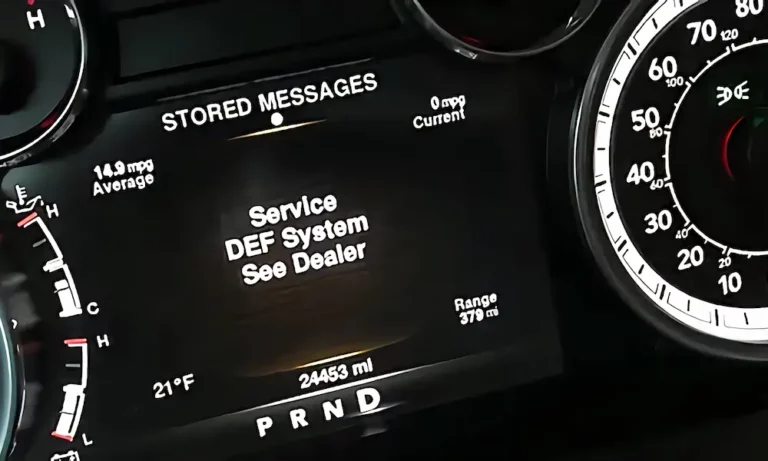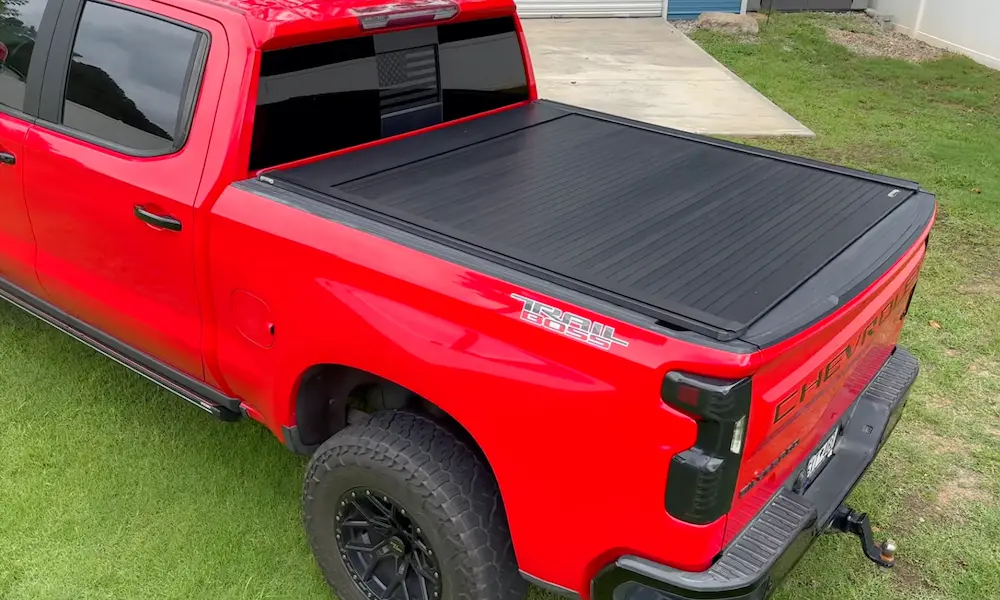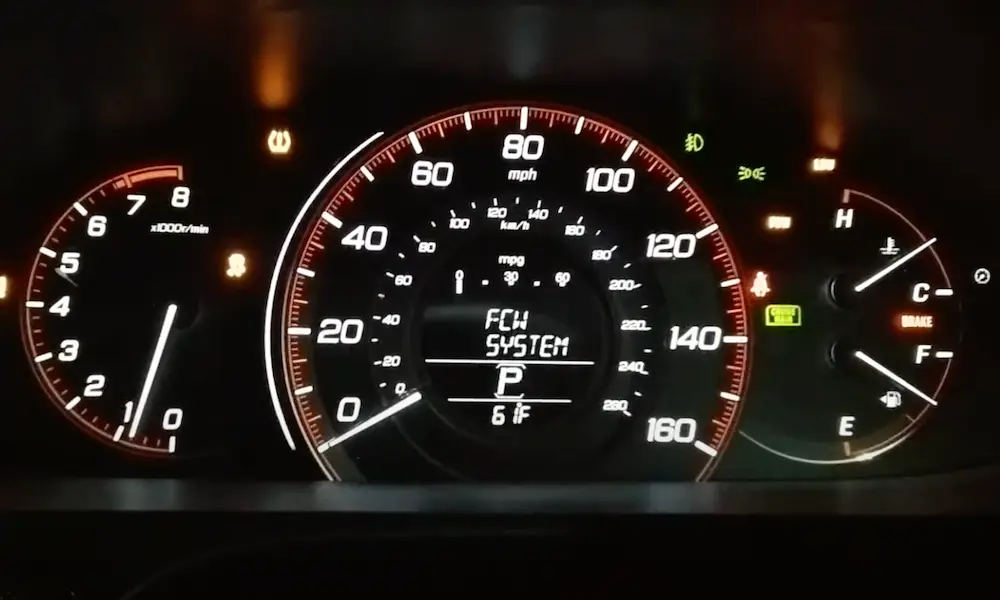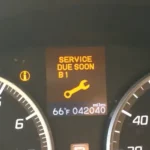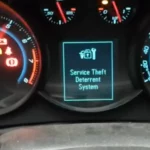Seeing the “Service DEF System See Dealer” message on your diesel vehicle’s dashboard can be stressful. This warning often means your DEF system needs attention, but it doesn’t always require a trip to the dealer. You can handle some issues, like checking the DEF fluid level or replacing sensors. Curious about solving the problem yourself? Keep reading for practical tips and insights that might save you time and money.
Understanding the DEF System
In modern diesel engines, the Diesel Exhaust Fluid (DEF) system plays a vital role. It helps reduce harmful emissions through a process called Selective Catalytic Reduction (SCR). By understanding the components and workings of the DEF system, you can better appreciate its importance in emission control.
Components of the DEF System
The DEF system is made up of several key parts working together. The DEF tank holds the Diesel Exhaust Fluid, a mixture of water and urea. A DEF pump moves the fluid from the tank to where it’s needed. DEF injectors spray the fluid into your exhaust system. Sensors monitor DEF levels and emission outputs to ensure the system is functioning correctly.
The Selective Catalytic Reduction (SCR) works with these components to change harmful emissions into harmless substances. Additionally, a Diesel Particulate Filter (DPF) and Exhaust Gas Recirculation (EGR) valve are often part of the system, helping further reduce pollutants.
How DEF Works
DEF is crucial for controlling emissions in diesel engines. When the engine is running, it emits nitrogen oxides (NOx), which are harmful pollutants. The SCR uses DEF to convert NOx into nitrogen and water vapor, which are safe.
The process starts with the DEF injector spraying fluid into the exhaust stream. As the exhaust gases pass through the SCR, they react with the DEF. This reaction is what changes the pollution-causing NOx into less harmful elements.
By effectively turning NOx into nitrogen and water, the DEF system greatly cuts down on emissions, ensuring the diesel engine meets environmental standards.
The Role of the Diesel Engine in DEF Operation
Your diesel engine’s role is central to how well the DEF system works. The engine produces NOx, which needs to be treated by the DEF system. Sensor technologies in the engine and exhaust track emissions to keep them under control.
The engine includes parts like the DPF and EGR valve that work with the DEF system to reduce emissions. Your vehicle’s computer system also plays a part, adjusting operations based on sensor data to maintain efficiency.
By functioning as an integrated unit, the engine and DEF system together help in reducing the overall impact of diesel emissions on the environment.
Recognizing and Understanding DEF Alerts
When you see a “Service DEF System See Dealer” alert, it’s important to know what it means and what steps you can take. Maintaining your vehicle’s DEF system ensures that emissions stay low and your engine runs efficiently. Key points include understanding common notifications, interpreting trouble codes, and knowing how to reset alerts.
Common DEF System Notifications
Your vehicle may display several alerts related to the Diesel Exhaust Fluid (DEF) system. A common message is “Service DEF System See Dealer,” which can indicate issues such as an overfilled DEF tank or dirty DEF fluid. Check the DEF gauge regularly to monitor fluid levels.
A “Check Engine Light” often accompanies these alerts. It’s crucial to pay attention, as ignoring them can lead to more serious engine problems. Be proactive in addressing these warnings by checking for contaminated or low DEF levels. Maintaining fresh fluid can prevent many common problems.
Interpreting Trouble Codes
Trouble codes play a significant role in diagnosing DEF system problems. For instance, a P207F code might indicate issues with the SCR (Selective Catalytic Reduction) system. Using a code reader to pinpoint specific trouble codes is helpful in understanding what needs immediate attention.
Investigate whether a problem stems from a faulty sensor, wiring issue, or something more serious. The Powertrain Control Module (PCM) often stores these codes and can provide crucial information. Resolving the root of these codes ensures your vehicle operates smoothly. Regular checks with diagnostic tools aid in catching issues early.
Resetting DEF Alerts
Once you’ve fixed a DEF issue, you may need to reset alerts to clear your dashboard. First, try turning your vehicle off and on. This simple action can sometimes reset minor alerts. If not, using a code reader is the next best step to clear the code.
Select “Reset” or “Clear Codes” options to update the system. If you’re uncertain, your dealer can help reset persistent warnings. Keeping the DEF system in check prevents future alerts. Regular maintenance checks assist in avoiding repetitive warnings and ensure your emission system functions correctly.
Troubleshooting DEF Issues
When dealing with issues related to the Diesel Exhaust Fluid (DEF) system, it helps to tackle common problems like limp mode, component failures, and contamination. Understanding these problems can save you time and prevent costly repairs.
Limp Mode: Causes and Solutions
Limp mode is a safety feature that reduces engine power to avoid damage. It can happen if there’s a faulty sensor or low DEF levels. Check the trouble codes to understand what might be causing it.
First, ensure your DEF tank isn’t overfilled and the fluid is at the correct level. If the problem persists, you might need to reset the system. Disconnect the battery’s negative terminal for a few minutes before reconnecting it, which might clear any temporary glitches.
If limp mode is due to a system malfunction, it may require more professional intervention. Consider visiting a dealer to diagnose the issue properly. Additionally, always keep a lookout for wet spots under the vehicle, as these could indicate leaks.
Component Failures: Pumps, Sensors, and Injectors
Failures in the DEF system components like the DEF pump, sensors, and injectors can trigger alerts. Begin with inspecting each part for any obvious signs of wear or damage.
Pumps might become inefficient due to clogs or motor failures. Sometimes, a reset can help, but often, these parts need replacement. Sensors are prone to faults due to exposure and age. When they fail, they send incorrect readings resulting in poor engine performance.
Injectors can also clog. If they fail, they might need cleaning or replacement. Regular maintenance and replacing faulty parts like sensors and pumps can help prevent failures. Avoid ignoring warning lights, as these indicate underlying issues that need attention to ensure the smooth functioning of your vehicle.
Dealing With DEF Contamination
DEF contamination can happen if water or dirt enters the system. This can disrupt the balance necessary for effective exhaust treatment. Contamination often leads to poor performance and may trigger warning messages.
To handle contamination, start by flushing the system to remove impurities. Use distilled water to avoid introducing new contaminants during cleaning. Refilled with fresh DEF from a reputable supplier.
Clean or replace the DEF filter regularly to prevent dirt from entering the system. Keeping the DEF tank sealed and regularly inspected can help in reducing the risk of contamination.
Dealer Interactions: When and How
Interacting with your dealer is essential when managing the DEF system in your vehicle. You’ll find that scheduling maintenance, understanding warranties, and knowing the dealer’s role in DEF upkeep are crucial for a smooth experience.
Scheduling Maintenance With a Dealer
When your vehicle displays the “Service DEF System See Dealer” message, it’s important to schedule maintenance promptly. Contact your dealer to arrange an appointment that fits your schedule.
Regular check-ups help to detect potential issues early, preventing costly repairs in the long run. Creating a maintenance schedule with your dealer can be beneficial, covering essentials like inspecting DEF levels and checking for leaks.
Staying consistent with these appointments keeps your vehicle in good shape and ensures you adhere to any upcoming service requirements.
Understanding Your Vehicle’s Warranty
Knowing the details of your vehicle’s warranty can save you from unexpected expenses. Many DEF systems are covered under warranty for a specific mileage or duration.
For instance, the DEF system might be under warranty until 50,000 miles, but it could extend to 80,000 miles under certain conditions. Check with your dealer for the exact terms that apply to your vehicle.
Having a clear grasp of your warranty helps you make informed decisions about repairs and replacements, ensuring you’re not paying out of pocket for issues covered by your warranty.
The Dealer’s Role in DEF Maintenance and Repair
Dealers play a key role in maintaining and repairing your DEF system. They have the tools and expertise needed to address complex issues that may arise from sensor problems or low DEF levels.
Dealers can reset warning messages, replace filters, and address any leaks. They ensure that any repairs or maintenance align with the manufacturer’s guidelines, preserving your warranty and keeping your vehicle in compliance with emissions regulations.
By working closely with your dealer, you ensure the DEF system functions optimally, reducing the likelihood of warnings and potential performance issues.
Maintenance Practices for the DEF System
Maintaining your DEF system ensures smooth performance and lessens the chance of encountering issues like the “Service DEF System See Dealer” warning. Regular care involves consistent inspection and understanding how to handle DEF in varying weather conditions, while also keeping the DEF tank adequately filled.
Regular Inspection and Maintenance
Regular inspection of your Diesel Exhaust Fluid system is crucial. A maintenance schedule is essential for checking DEF levels and overall system health. A misaligned or clogged DEF level sensor can trigger warnings and affect performance. Make it a habit to inspect the system monthly.
Check for external signs of leak or damage to the DEF tank and nozzles. Keeping the system clean helps avoid buildup that could impair function.
Handling DEF in Various Climates
DEF is sensitive to temperature changes, so it’s important to know how to handle it across climates. In colder climates, DEF can freeze because it is mainly made of water. To prevent problems, use insulated DEF tanks or store DEF indoors to maintain its effectiveness.
In hot climates, keep DEF away from direct sunlight to avoid contamination. Always use clean filling equipment to prevent dirt from entering the DEF tank.
The Importance of Keeping the DEF Tank Filled
Maintaining a full or adequately filled DEF tank prevents many common issues. A low DEF level could trigger the “Service DEF System See Dealer” alert. Always refill the tank before it gets too low, ideally when it reaches one-fourth full.
This practice keeps your vehicle running efficiently and avoids unnecessary trips to the dealer for emergency refills. Regularly checking and ensuring the correct DEF mixture maintains the health of your vehicle’s emission system.

